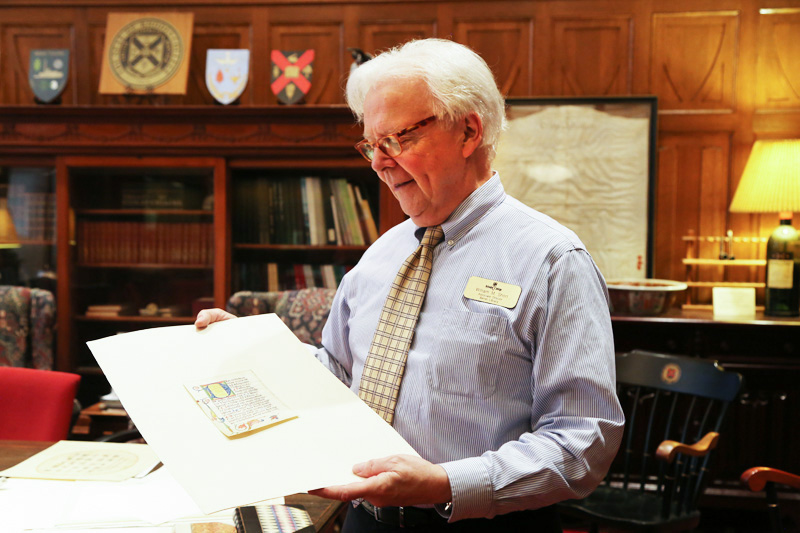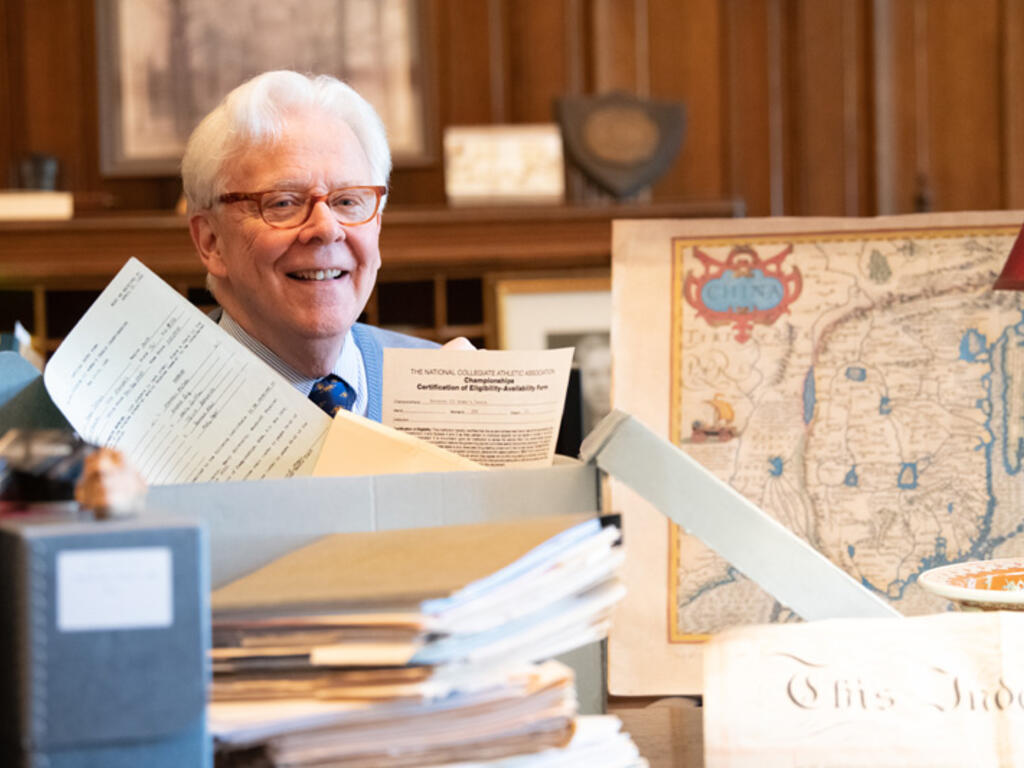Since its creation in the 1940s, the Rhodes College Archives has served as a resource for learning and reference, and that legacy continues to grow under the watchful eye of Associate Director of Library Services Bill Short '71.
As Short explains it, “Whether it's a sheet of paper, a photograph, or some kind of three-dimensional object, all of these items are here for one purpose, and that is to be used for teaching and learning.”
The Archives contain five primary collections that cover a wide range of disciplines and mediums. The Photo File is a collection of photographs and slides, while the Documents Collection contains paper copies of institutional records, annual reports, and alumni files. The Rhodes Special Collections are non-circulating catalogued items, primarily books that have been written by alumni or faculty and college publications such as yearbooks and view books that help document the college’s history. The Memorabilia Collection includes the first gifts given to the college by Henry S. Bunting, Class of 1891, and other items that comprised the college’s original “museum of college antiquities.” Much of the college’s physical items can also be viewed online through DLynx (dlynx.rhodes.edu), the digital version of the Archives.
Despite all the work that Short has done to grow the Archives into what it is today, he gives all credit of the planning and development of the Archives to Elizabeth Gates. Gates, who served as college archivist, spearheaded the modern inception of the Archives in the 1980s. Following Gates’ retirement in 2015, Short stepped into her role looking to continue much of the groundwork that she had already laid out.
A core aspect of the Archives is the role that students play in the upkeep and preservation of the collections. Through the Rhodes Student Associate Program, students from all disciplines can work in the Archives following a hiring and training period.
“The work that we do here comes into three categories. First, there is accepting the gifts that we're offered. Most of the things we gather are those things that are offered to us. Then we do the curation. We decide which area they're going to be kept in and how they'll be listed. The third category would be the sustainability of the collection, which falls under conservation and preservation. Also, my students are trained to the level of delivery. So, if I'm in a class or a meeting and someone comes in, they're able to greet them and talk them through the process by which they interact in the Archives. The student associate is acting in my stead.”
Through a mix of videos from the British Museum, the J. Paul Getty Museum, and Oxford University, along with hands-on training, students working in the Archives get firsthand knowledge on the history of the objects and how they are best cared for.
—Bill Short
“In the training they’re learning how to manage objects, whether they be rare things, fragile things, or everyday objects,” says Short. “More importantly, they learn what not to do.”
For Short, a longtime goal has been transforming the Archives into a more approachable place for alumni and students. DLynx has been a major way that the Archives have been able to educate and connect with those interested in accessing items globally. The Paul Barret, Jr. Library’s podcast, Lynx to the Past, has also been able to leverage the Archives to tell the college’s stories in new and refreshing ways.
“I think the common misperception is that there's nothing in the Archives that one would be interested in. Students walk by here on the way to the classroom next door and look in, but they have no sense of what this is about. We're not keeping it a secret. All those rare books are in the catalog. For many, DLynx hasn’t been discovered yet, but we're pushing it heavily. Our podcast, which is the brainchild of Kenan Padgett, interlibrary loan librarian, and her students, is literally the active voice of our collection. The episodes are telling the story of this college, and I could not be happier that all we've collected and curated here is finding an audience.”
Despite the meticulous work that goes into the preservation and upkeep of the Archives, Short says that the impact that it makes on preserving the college’s history makes the difficulty worth it.
“We work with this motto that's been around for centuries, Festina Lente, which means ‘make haste slowly.’ It's the way we work here. I think I have the best job on campus. I get up every morning knowing that what we're doing here is meaningful to our student body.”
By Matthew Harris '21

